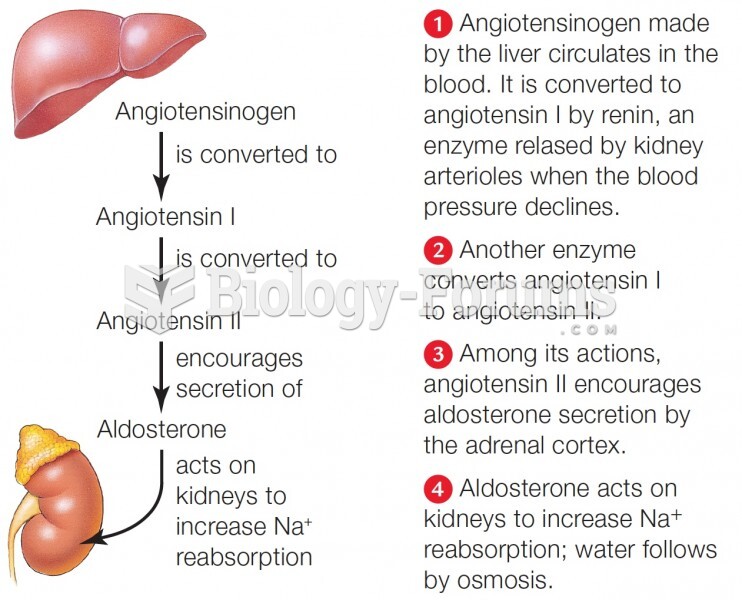|
|
|
Did you know?
Symptoms of kidney problems include a loss of appetite, back pain (which may be sudden and intense), chills, abdominal pain, fluid retention, nausea, the urge to urinate, vomiting, and fever.
Did you know?
Green tea is able to stop the scent of garlic or onion from causing bad breath.
Did you know?
Vaccines prevent between 2.5 and 4 million deaths every year.
Did you know?
In Eastern Europe and Russia, interferon is administered intranasally in varied doses for the common cold and influenza. It is claimed that this treatment can lower the risk of infection by as much as 60–70%.
Did you know?
About 100 new prescription or over-the-counter drugs come into the U.S. market every year.







